Unit 2 Healthy eating Using language课件(共29张PPT)
文档属性
| 名称 | Unit 2 Healthy eating Using language课件(共29张PPT) | 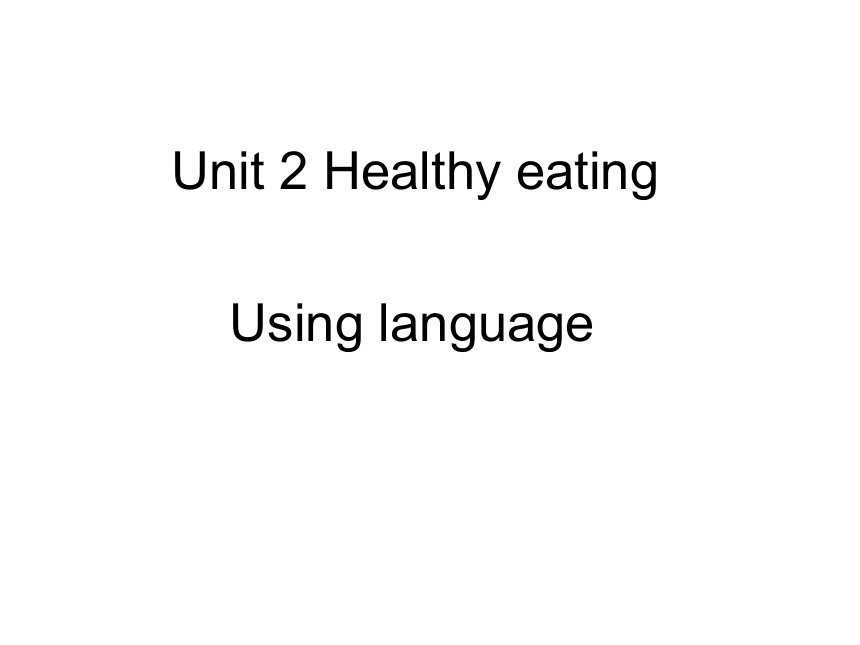 | |
| 格式 | zip | ||
| 文件大小 | 66.7KB | ||
| 资源类型 | 教案 | ||
| 版本资源 | 人教版(新课程标准) | ||
| 科目 | 英语 | ||
| 更新时间 | 2018-11-07 07:45:09 | ||
图片预览

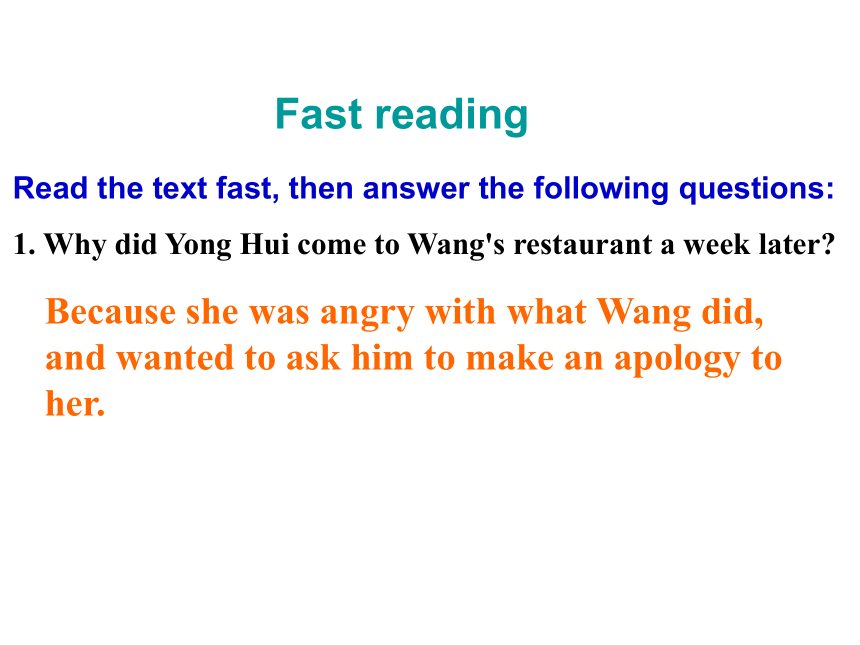
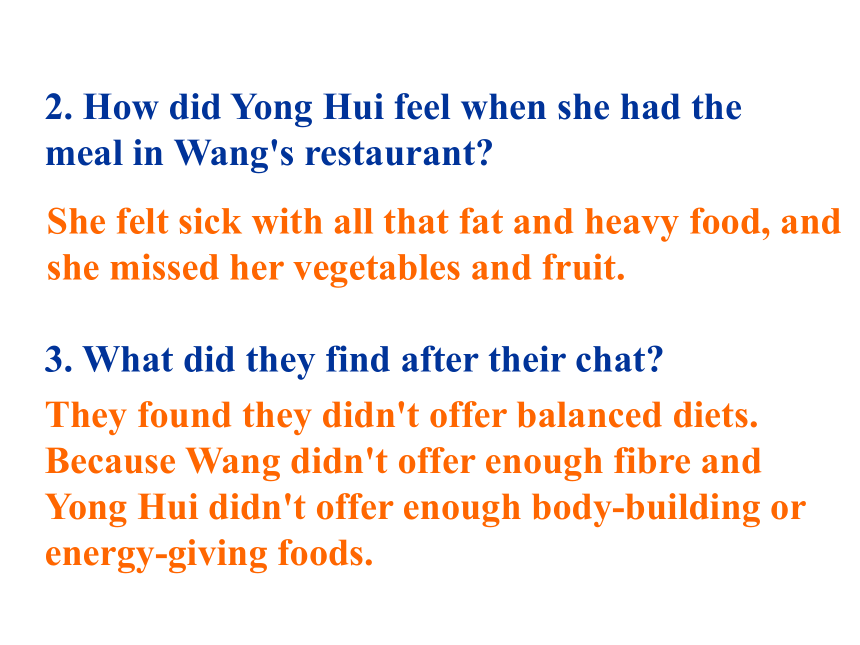
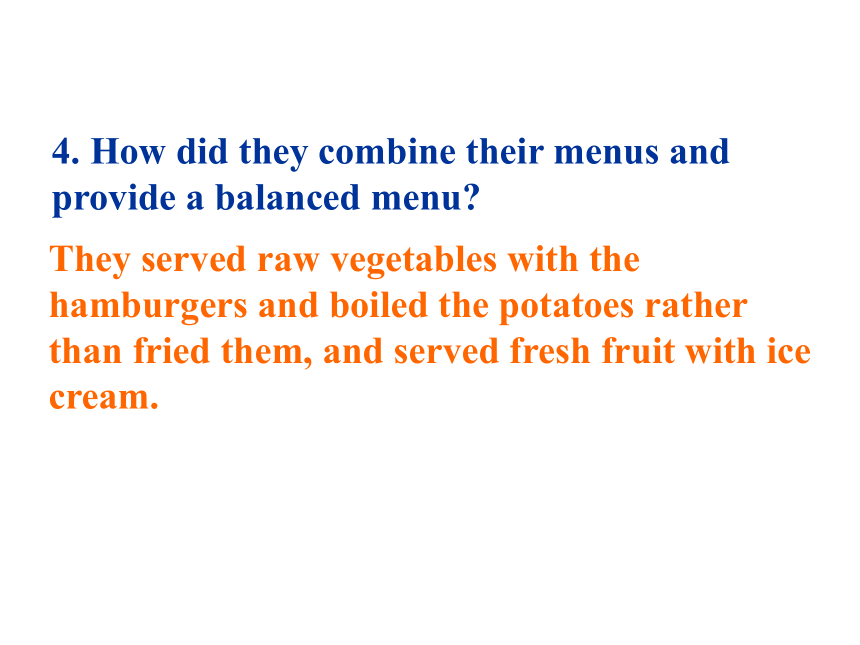
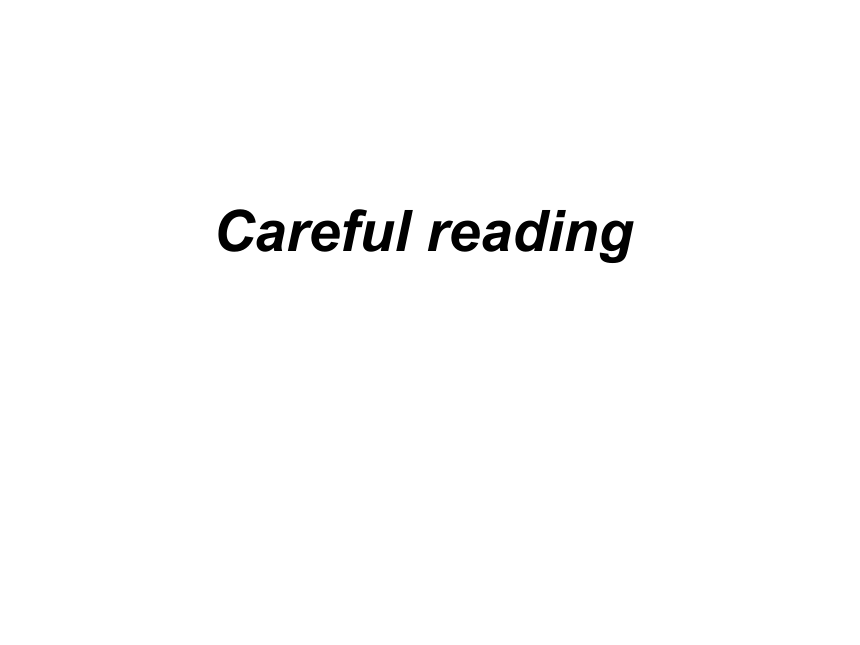
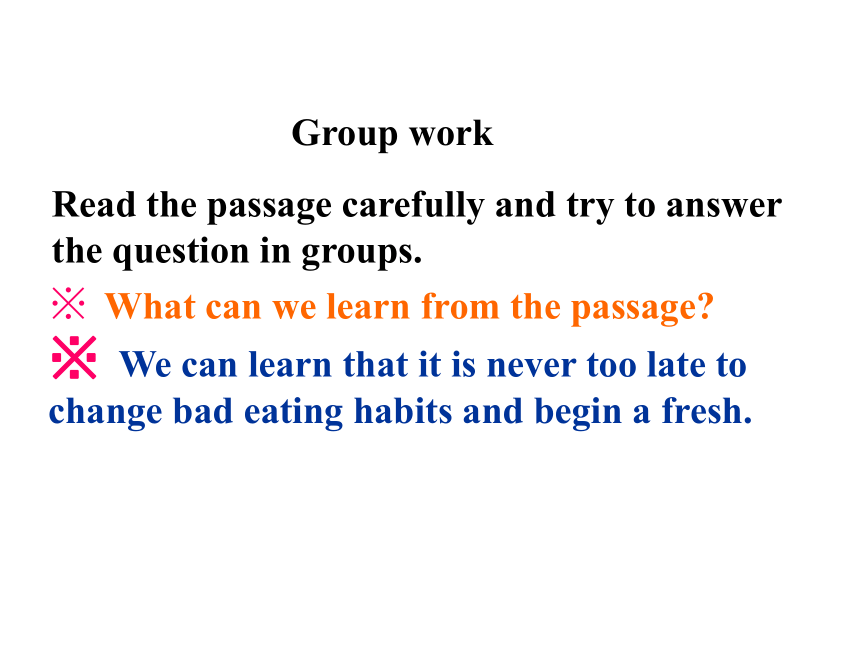
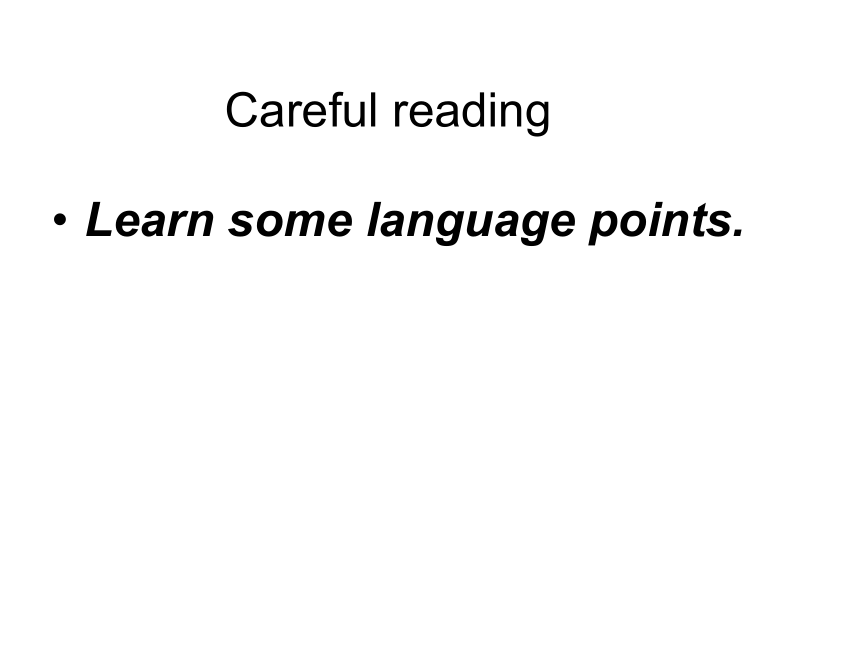
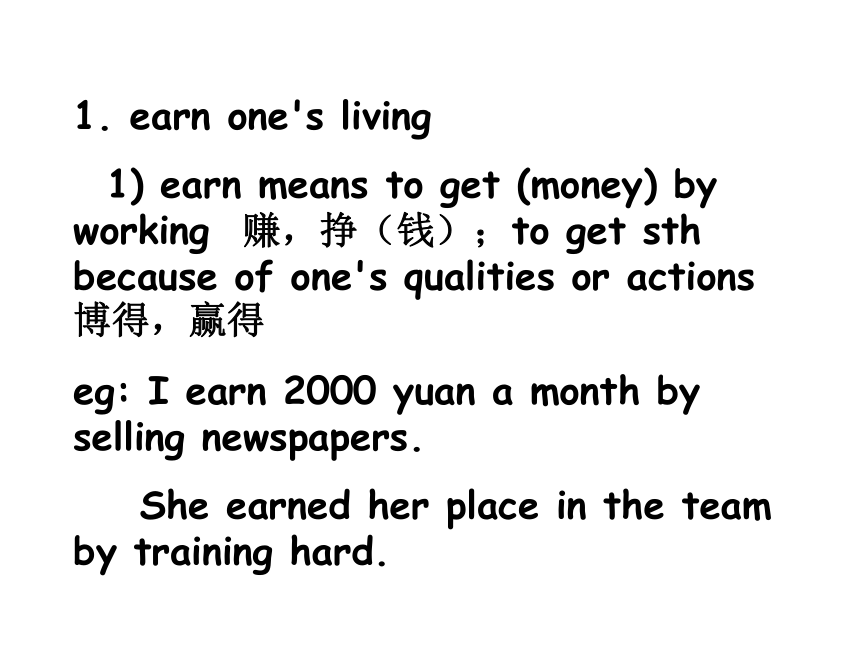
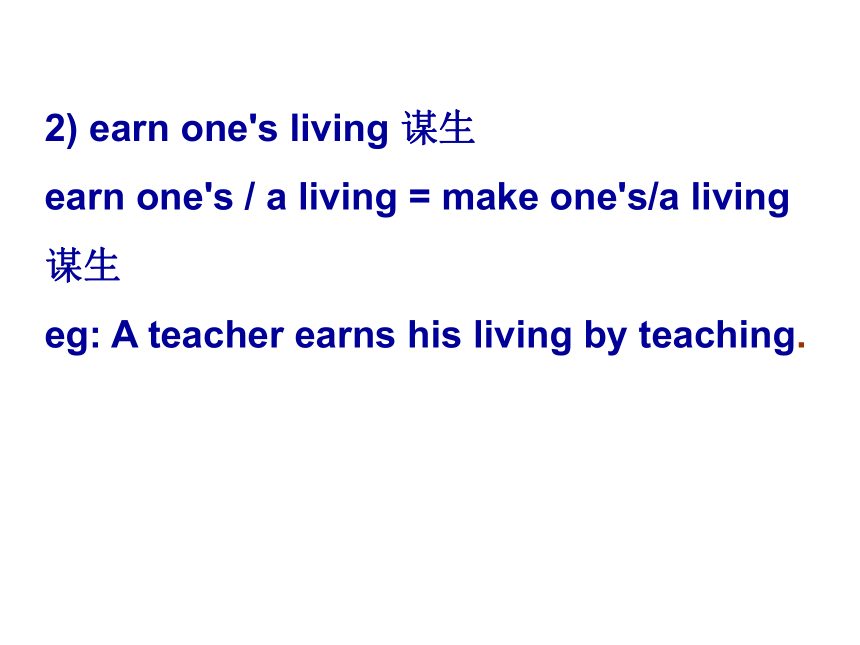
文档简介
课件29张PPT。Unit 2 Healthy eating
Using languageFast readingRead the text fast, then answer the following questions:
1. Why did Yong Hui come to Wang's restaurant a week later?Because she was angry with what Wang did, and wanted to ask him to make an apology to her. 2. How did Yong Hui feel when she had the meal in Wang's restaurant?
3. What did they find after their chat?
She felt sick with all that fat and heavy food, and she missed her vegetables and fruit.They found they didn't offer balanced diets. Because Wang didn't offer enough fibre and Yong Hui didn't offer enough body-building or energy-giving foods.4. How did they combine their menus and provide a balanced menu?They served raw vegetables with the hamburgers and boiled the potatoes rather than fried them, and served fresh fruit with ice cream.Careful reading※ What can we learn from the passage?※ We can learn that it is never too late to change bad eating habits and begin a fresh.Group workRead the passage carefully and try to answer the question in groups.Careful readingLearn some language points.1. earn one's living
1) earn means to get (money) by working 赚,挣(钱);to get sth because of one's qualities or actions 博得,赢得
eg: I earn 2000 yuan a month by selling newspapers.
She earned her place in the team by training hard.2) earn one's living 谋生
earn one's / a living = make one's/a living
谋生
eg: A teacher earns his living by teaching.2. be in debt
the state of owing 欠债,负债
eg:现在我欠债很多,但希望发工资后能付清。
I'm heavily in debt at the moment, but hope to be out of debt when I get paid.
get/run into debt 负债
in debt to sb = in one's debt
欠某人的债,受某人的恩惠
out of debt 3. glare vt.
to look in an angry way; to shine with a strong light.
glare at
表示“怒目而视”
glance at
表示“粗略地看一下”look at
“看看……”为一般用语
stare at
表示“盯着 …… 看,凝视”1)用let′s或shall I/we来表示对第一人称的建议
let′s +动词原形:
Let′s paint it ourselves.我们自己来刷漆。
有时可加上shall we?
Let′s get the paint today,shall we?我们今天把油漆弄来,好吗?
shall I/we+动词原形:
我们邀请比尔好吗?
Shall we invite Bill?4、有关建议或劝告的句型归纳:对Let′s或 shall we表示的建议的肯定答语中可以用yes或Let′s。
Let′s not可用做带玩笑口气的否定回答:
—我们把帐篷带上吧。—可别!
—Let′s take the tent.—Let′s not!
或引导一个否定的建议:
我们别出发得太早。
Let′s not start too early.
这里也可以用don′t, let′s: Don′t let′s start too early.(译文同上。)2) what/how about +动名词/名词:
我们睡在哪儿?
Where shall we sleep?
租一辆旅行拖车怎么样?
What about renting a caravan?
那么住在“供应住宿和早餐”服务的小客店怎么样?
What about a bed and breakfast place?
3) must,ought to和should可用来表示劝告:
你该读一读这本书。这本书非常好。
You must read this book.It′s very good.
你应该自己种菜吃。
You should grow your own vegetables.
你应当种几棵树。
You ought to plant some trees.
4) you had better +不带to的不定式:
你最好把湿鞋子脱掉。
You′d better take off your wet shoes.
你最好不要再等了。
You′d better not wait any longer.
had better可用于第三人称:
他最好别再服用那些药片。
He′d better stop taking those pills.5) if I were you I should/would:
如果我是你,我就买一辆汽车了。
If I were you I′d buy a car.
这种形式常常被缩略为I should/would,I稍加重音:I′d buy a car.(译文同上。)
在间接引语中 If I were you I should/would…由advise+宾语结构来转述:
他劝我买辆汽车。
He advised me to buy a car.6) I advise/would advise you+不定式:
(你要是问我的意见的话)我劝你马上去申请。
I(would) advise you to apply at once.
I advise/would advise+动名词:
I(′d) advise applying at once.
(译文同上。)
7) why don′t you… / Why not do …?
可表示劝告或建议:
你为什么不学弹吉它?
Why don′t you / Why not learn to play your guitar?
你为什么不休假?
Why don′t you / Why not take a holiday?
8) it is time you + 过去时态:
你该买一件新外衣了。
It is time you bought a new coat.
5、有关看病的句型归纳:病人:There's something wrong with … ……有些不对劲。
I've got a cough 我咳嗽。
I feel terrible(bad). 我感觉很糟糕。
I don't feel well. 我感觉不舒服。
I've got a pain here. 我这儿痛。
This place hurts. 这个地方伤了。
医生:What's wrong with you? / What's the matter with you? 你怎么了?
It's nothing serious. 没什么大问题。
You'll be all right/well soon. 你很快就会好的。
Take this medicine three times a day. 每天吃三次药。
Drink plenty of water and have a good rest. 喝多点水,并好好休息。 The way to express “say”Group workFill in the blanks with “tell,say,sprak,discuss,ask”1.______a lie
2.______a question
3.don't_____a word
4.________a language
5.______a story
6._____Business
7._______a topic
8._______a joke
9._______hello tellasksayspeaktelltalkdiscusstellsaySpeaking and writing Discuss in groups what food you must eat to have a balanced diet. How much should you eat each day?Group workImagine you are planning to open a restaurant which will provide the best local dishes in your area and a balanced diet. In groups discuss how to run the business. Give each other suggestions and advice. The following expressions may help you.What should we do?
You must / mustn't…
You'd better …
I would strongly advise you to …
My advice is / would be …
Shall we…?
I think you ought to …
You need /needn't…
You night…
It might be a good idea to …
How about …?
Perhaps you should…
You have to / don't have to…
I suggest that you…
Writing Write a short passage to advertise your restaurant and its service. Your writing should:
explain what kind of food will be offered in your restaurant
describe their ingredients, flavour, smell and appearance
explain how they will provide a balanced diet
explain why your restaurant will provide the best food in the area
explain how customers will be served1. Review the words and expressions of this unit.
2. Make sure you know what are balanced diets.Homework
Using languageFast readingRead the text fast, then answer the following questions:
1. Why did Yong Hui come to Wang's restaurant a week later?Because she was angry with what Wang did, and wanted to ask him to make an apology to her. 2. How did Yong Hui feel when she had the meal in Wang's restaurant?
3. What did they find after their chat?
She felt sick with all that fat and heavy food, and she missed her vegetables and fruit.They found they didn't offer balanced diets. Because Wang didn't offer enough fibre and Yong Hui didn't offer enough body-building or energy-giving foods.4. How did they combine their menus and provide a balanced menu?They served raw vegetables with the hamburgers and boiled the potatoes rather than fried them, and served fresh fruit with ice cream.Careful reading※ What can we learn from the passage?※ We can learn that it is never too late to change bad eating habits and begin a fresh.Group workRead the passage carefully and try to answer the question in groups.Careful readingLearn some language points.1. earn one's living
1) earn means to get (money) by working 赚,挣(钱);to get sth because of one's qualities or actions 博得,赢得
eg: I earn 2000 yuan a month by selling newspapers.
She earned her place in the team by training hard.2) earn one's living 谋生
earn one's / a living = make one's/a living
谋生
eg: A teacher earns his living by teaching.2. be in debt
the state of owing 欠债,负债
eg:现在我欠债很多,但希望发工资后能付清。
I'm heavily in debt at the moment, but hope to be out of debt when I get paid.
get/run into debt 负债
in debt to sb = in one's debt
欠某人的债,受某人的恩惠
out of debt 3. glare vt.
to look in an angry way; to shine with a strong light.
glare at
表示“怒目而视”
glance at
表示“粗略地看一下”look at
“看看……”为一般用语
stare at
表示“盯着 …… 看,凝视”1)用let′s或shall I/we来表示对第一人称的建议
let′s +动词原形:
Let′s paint it ourselves.我们自己来刷漆。
有时可加上shall we?
Let′s get the paint today,shall we?我们今天把油漆弄来,好吗?
shall I/we+动词原形:
我们邀请比尔好吗?
Shall we invite Bill?4、有关建议或劝告的句型归纳:对Let′s或 shall we表示的建议的肯定答语中可以用yes或Let′s。
Let′s not可用做带玩笑口气的否定回答:
—我们把帐篷带上吧。—可别!
—Let′s take the tent.—Let′s not!
或引导一个否定的建议:
我们别出发得太早。
Let′s not start too early.
这里也可以用don′t, let′s: Don′t let′s start too early.(译文同上。)2) what/how about +动名词/名词:
我们睡在哪儿?
Where shall we sleep?
租一辆旅行拖车怎么样?
What about renting a caravan?
那么住在“供应住宿和早餐”服务的小客店怎么样?
What about a bed and breakfast place?
3) must,ought to和should可用来表示劝告:
你该读一读这本书。这本书非常好。
You must read this book.It′s very good.
你应该自己种菜吃。
You should grow your own vegetables.
你应当种几棵树。
You ought to plant some trees.
4) you had better +不带to的不定式:
你最好把湿鞋子脱掉。
You′d better take off your wet shoes.
你最好不要再等了。
You′d better not wait any longer.
had better可用于第三人称:
他最好别再服用那些药片。
He′d better stop taking those pills.5) if I were you I should/would:
如果我是你,我就买一辆汽车了。
If I were you I′d buy a car.
这种形式常常被缩略为I should/would,I稍加重音:I′d buy a car.(译文同上。)
在间接引语中 If I were you I should/would…由advise+宾语结构来转述:
他劝我买辆汽车。
He advised me to buy a car.6) I advise/would advise you+不定式:
(你要是问我的意见的话)我劝你马上去申请。
I(would) advise you to apply at once.
I advise/would advise+动名词:
I(′d) advise applying at once.
(译文同上。)
7) why don′t you… / Why not do …?
可表示劝告或建议:
你为什么不学弹吉它?
Why don′t you / Why not learn to play your guitar?
你为什么不休假?
Why don′t you / Why not take a holiday?
8) it is time you + 过去时态:
你该买一件新外衣了。
It is time you bought a new coat.
5、有关看病的句型归纳:病人:There's something wrong with … ……有些不对劲。
I've got a cough 我咳嗽。
I feel terrible(bad). 我感觉很糟糕。
I don't feel well. 我感觉不舒服。
I've got a pain here. 我这儿痛。
This place hurts. 这个地方伤了。
医生:What's wrong with you? / What's the matter with you? 你怎么了?
It's nothing serious. 没什么大问题。
You'll be all right/well soon. 你很快就会好的。
Take this medicine three times a day. 每天吃三次药。
Drink plenty of water and have a good rest. 喝多点水,并好好休息。 The way to express “say”Group workFill in the blanks with “tell,say,sprak,discuss,ask”1.______a lie
2.______a question
3.don't_____a word
4.________a language
5.______a story
6._____Business
7._______a topic
8._______a joke
9._______hello tellasksayspeaktelltalkdiscusstellsaySpeaking and writing Discuss in groups what food you must eat to have a balanced diet. How much should you eat each day?Group workImagine you are planning to open a restaurant which will provide the best local dishes in your area and a balanced diet. In groups discuss how to run the business. Give each other suggestions and advice. The following expressions may help you.What should we do?
You must / mustn't…
You'd better …
I would strongly advise you to …
My advice is / would be …
Shall we…?
I think you ought to …
You need /needn't…
You night…
It might be a good idea to …
How about …?
Perhaps you should…
You have to / don't have to…
I suggest that you…
Writing Write a short passage to advertise your restaurant and its service. Your writing should:
explain what kind of food will be offered in your restaurant
describe their ingredients, flavour, smell and appearance
explain how they will provide a balanced diet
explain why your restaurant will provide the best food in the area
explain how customers will be served1. Review the words and expressions of this unit.
2. Make sure you know what are balanced diets.Homework
同课章节目录
